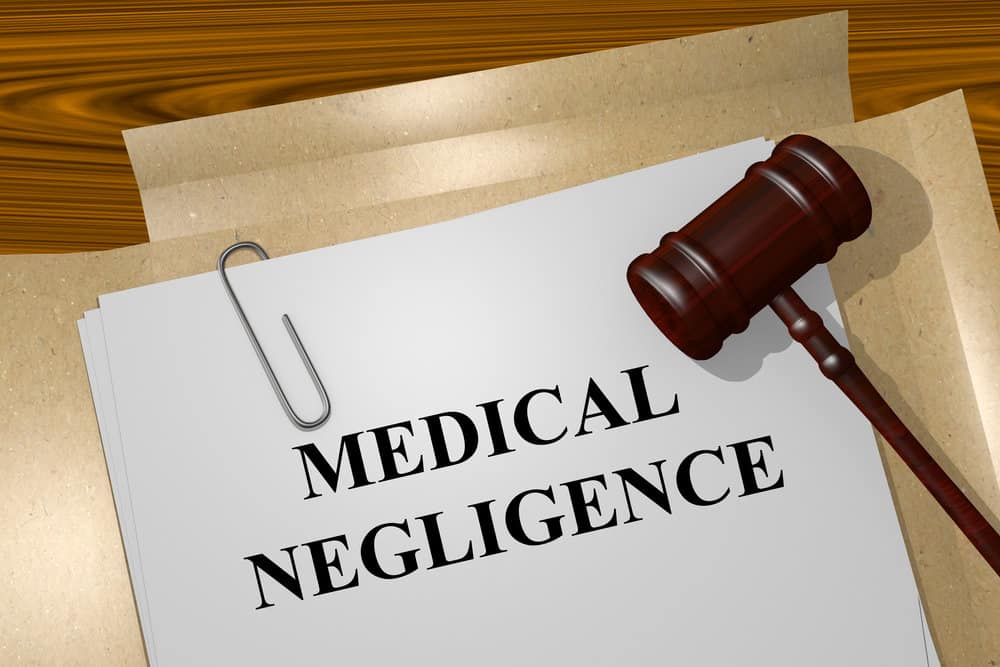Hospital stays are stressful enough without the worry of being harmed by a medical error in your treatment or negligence in your hospital care. If you determine that you or a loved one have suffered harm, you may wonder how long you have to sue a hospital for negligence.
How Long Do You Have to Sue a Hospital for Negligence?
The law limits how long you can sue for negligence – it’s known as the statute of limitations. Most states have a two- or three-year limit. However, they also differ in when the limit starts.
For example, some states use the discovery rule, meaning that the time provided by the statute of limitations only starts when the injury is discovered or should have been discovered by you.
In states that implement the continuous treatment rule, the statute of limitations starts when the hospital or doctor stops treating the patient.
Yet other states extend the statute of limitation for longer in what is known as the infancy toll. Therefore, minors have an extended time to sue for negligence that occurred when they were younger. Under this rule, states also delay the statute of limitations for people declared incompetent or those incarcerated. It gives them three years from when they are declared competent or released.
However, what is most critical to know about suing a hospital for negligence is that you must take action immediately after the incident. No matter how serious your injuries or offensive the conduct, you can do nothing once the statute of limitations has passed. To avoid missing the deadline, get legal counsel as soon as possible.
What Constitutes Hospital Negligence
Now that you have a better idea about how long do you have to sue a hospital for negligence, let’s delve into what is considered negligence in a hospital.
According to Forbes Adviser medical errors remain the top third leading cause of death in the U.S., as reported from data from a John Hopkins study. You visit a hospital because you need medical care. When the people meant to care for you cause you harm, it impacts your health and constitutes a breach of trust.
Various forms of negligence could lead to you suing a hospital.
1. Wrong Diagnosis or Treatment
One study from 2013 showed that most claims for medical malpractice lawsuits are from diagnostic errors. A wrong diagnosis can cause a delay in receiving the correct treatment, or the patient may receive no treatment, sometimes leading to death. Besides making a bad diagnosis, sometimes a doctor may overlook a specific condition. Some examples include not spotting a burst appendix or neglecting to treat a staph infection or sepsis.
2. Receiving Incorrect Medication
Receiving incorrect medication or missing a dose can cause patient harm, and these errors occur quite often in a hospital environment. Documentation errors often lead to wrongful medication dosages that can intensify an illness, even leading to death. The catastrophic effects of medication errors can include dangerous or fatal allergic reactions, especially when mixing the wrong types of medications. Unfortunately, such mix-ups can happen in busy hospitals where communication issues occur.
3. Mistakes Made by Medical Technicians
Medical technicians are the supporting staff of doctors and nurses. Their role includes taking your blood pressure, heart rate, and temperature readings. It also includes sanitizing medical instruments, monitoring IV fluid intake, and helping to support vulnerable people.
Suppose they neglect to perform any of these duties. In that case, the consequences can include infection from unsterile instruments, dehydration if they fail to notify of an empty IV fluid drip, or injury from a fall if a patient got no needed support to get to the bathroom.
4. Injuries During Treatment
One of the most common types of injuries during treatment is surgical errors, which often have debilitating effects. Some mistakes include operating on the wrong patient, performing the incorrect procedure, or operating on another site. Other surgical errors include ruptured blood vessels, severe bruising, burns, and injuries resulting from a lack of skills or equipment failure. These surgical errors can all have devastating effects on the patient involved.
5. Failure to Maintain the Medical Standard of Care
Medical professionals and hospitals must all maintain a common standard of care that entails high standards. If at any point they or the hospitals they work in fail, they leave themselves vulnerable to a negligence lawsuit.
6. Negligent Actions from Hospital Staff
Hospital staff must always follow policies that aim to keep patients safe. If any of their actions leave patients vulnerable to illness or infections, for example, if they don’t use sanitizer or don’t dispose of biohazards material properly, these actions are considered dangerous.
Furthermore, hospitals can be held liable for negligent hiring and negligent training. When hiring, they must perform all the background checks to ensure their employees don’t harm patients. They must also provide training to ensure the staff meets all the standards of care required by hospitals and the medical profession.
7. Wrongful Death of a Family Member
If a person dies from hospital staff negligence, their family members can seek compensation by bringing a wrongful death lawsuit.
Hospital stays are never a walk in the park. Toss in a medical error or negligence, and you’ve got a situation that’s stressful and potentially life-altering. Understanding the time frames and legal aspects of suing a hospital for negligence. Read on to make sense of the legal maze and determine your next steps.
Is Suing for Negligence Worthwhile? Strategies & Tips to Consider
You’ve got the basics down on how long you must file a lawsuit for hospital negligence. But how do you decide if it is worth your time, money, and emotional energy? Let’s dive into some strategies and tips:
Evaluate the Severity of the Case
- Tip: The more severe the case, the more compelling it is to go to court. Are we talking about a life-altering condition, permanent damage, or even death?
Consult with an Experienced Attorney
- Tip: A seasoned medical malpractice lawyer can help you assess the strength of your case and your potential compensation.
Gather Evidence
- Tip: Medical records, bills, and expert testimony can strengthen your claim. The more evidence, the better.
Assess Emotional and Financial Costs
- Lawsuits can be emotionally draining and costly.
- Tip: If the anticipated compensation doesn’t outweigh the emotional and financial costs, it might not be worth proceeding.
Consider Settlement Options
- Legal battles can be lengthy.
- Tip: Sometimes settling out of court is faster and less emotionally taxing. Consult your attorney on this.
Look at Other Cases
- Research similar cases and their outcomes.
- Tip: This can offer a reality check on what to expect in terms of time and compensation.
Statute of Limitations
- The clock’s ticking!
- Tip: Act fast to meet the statute of limitations, which varies by state and specific circumstances.
In answering the question: “How long do you have to sue a hospital for negligence?” it’s essential to know the state of limitations in your state so that you don’t wait too long. Present your case to an experienced attorney who will determine the physical, emotional, and financial harm you have suffered from the hospital’s negligence.
The attorney’s steps include gathering and reviewing all the medical records to resolve the treatment issues. Before assessing the potential damages, they will consult a medical expert before serving notice to the hospital.
You must have the evidence to prove a hospital’s liability before suing them for negligence. If an independently contracted nurse or doctor causes the injury, then in some cases, you must sue them and not the hospital. However, there are some circumstances where you can sue the hospital.
Frequently Asked Questions
What is the statute of limitations for suing a hospital?
Generally, 2-3 years from the incident or discovery of injury. This varies by state.
Can minors sue for medical negligence?
Yes, but the time frame may extend due to their minor status, a rule known as the “infancy toll.”
What is considered negligence by a hospital?
Wrong diagnosis, incorrect medication, poor treatment, failure to maintain medical standards, and errors by staff are common forms.
Do I need a lawyer to sue for negligence?
Highly recommended. An experienced attorney can guide you through the complex legal process and improve your chances of winning.
How do I start the lawsuit process?
Consult an attorney, gather evidence, and file a formal complaint.
Can I sue the hospital if the negligence was by an independent contractor?
Generally, you sue the contractor, not the hospital. However, there are exceptions based on the level of hospital oversight.
What evidence do I need to file a lawsuit?
Medical records, bills, expert testimony, and any other proof supporting your negligence claim.
What compensation can I expect?
This varies widely but can include medical bills, loss of earnings, and damages for pain and suffering.
Can I settle out of court?
Yes, many cases are settled before reaching the courtroom to save time and resources.
What if the patient has passed away due to negligence?
Family members can file a wrongful death lawsuit to seek compensation.
Are there emotional and financial costs to suing?
Yes, lawsuits can be time-consuming, emotionally draining, and expensive. However, most plaintiff lawyers will take such cases on a contingency fee basis where you won’t need to pay attorneys fees unless you win your case.
How long does a typical negligence lawsuit take?
Time frames vary, but you should be prepared for any lawsuit to take years to resolve.



